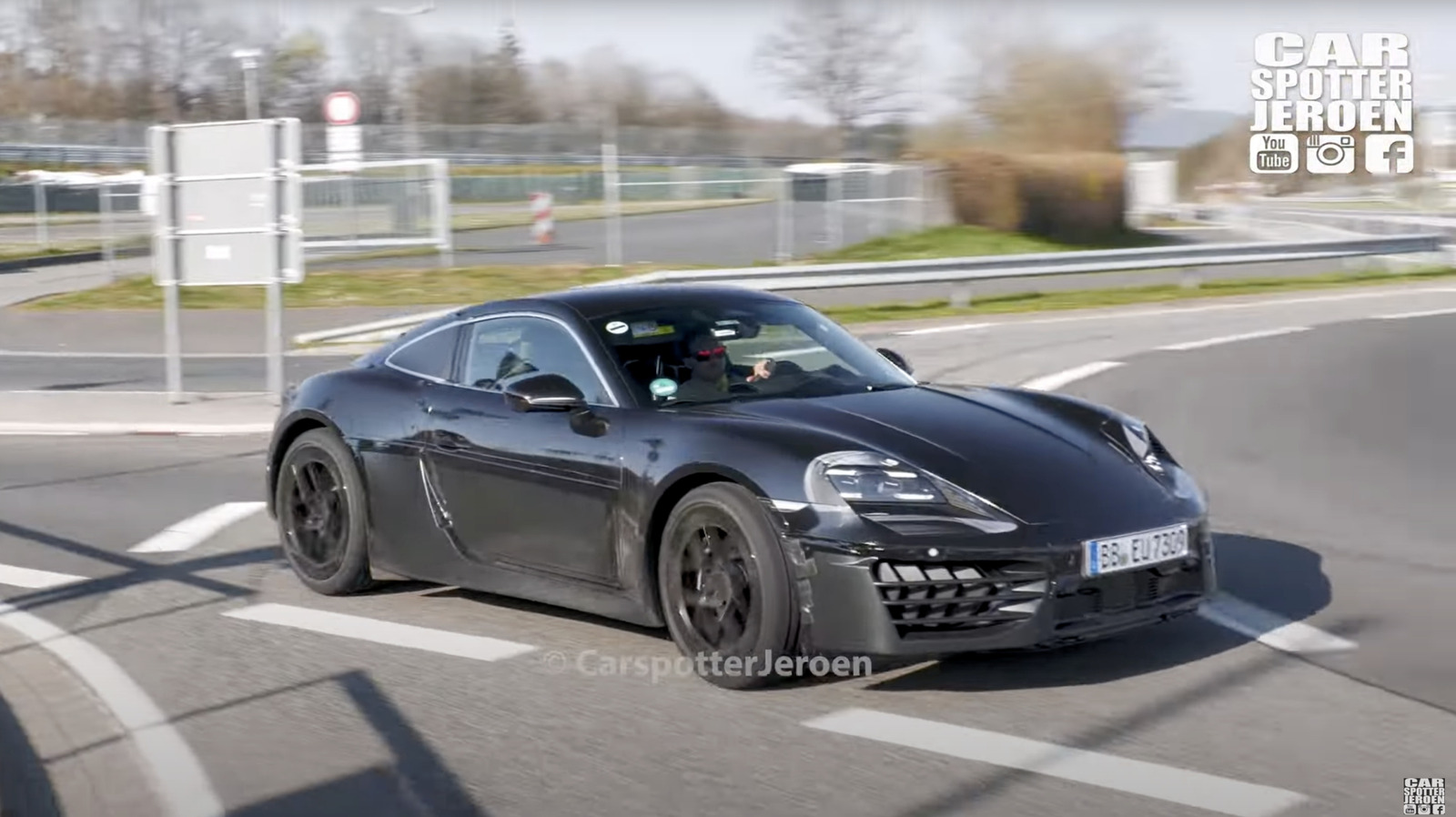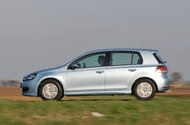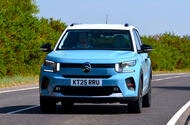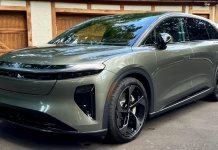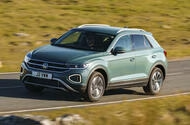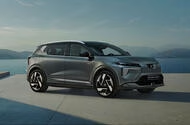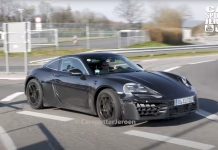Emissions scandal ten years on how Europe’s car industry is fighting back and shaping...
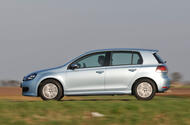 Emissions scandal changed the industry for good, forcing Europe's biggest firms to completely change tack
Emissions scandal changed the industry for good, forcing Europe's biggest firms to completely change tack
Ten years ago, on September 18, 2015, the automotive industry changed forever with one 'Notice of Violation’ issued by the United States Environmental Protection Agency (EPA). That might sound dry, but it was a bombshell that rapidly shook the entire automotive world.
The EPA notice revealed "irregularities" in the nitrous oxide (NOx) emissions in the emissions tests results of vehicles fitted with certain Volkswagen Group diesel engines – and alleged that undisclosed engine management software had been used since 2009 to essentially cheat the tests.
The initial recall was for 482,000 cars, but the Dieselgate scandal unravelled quickly from there. The Volkswagen Group soon admitted that the ‘defeat device’ had been fitted to around 11 million cars sold worldwide; within days, billions were wiped off the German giant's share price, while chief executive Martin Winterkorn quickly progressed from showing contrition to resigning.
In the following years, the Volkswagen Group spent billions on compensation and fines and numerous members of its staff faced civil and criminal prosecution. But the impact of Dieselgate wasn’t just limited to Volkswagen: it had a profound impact on the whole industry, not least because several other firms have since admitted using cheat devices of their own. And the effects of it are still being felt a decade later.
In the wake of the scandal, car makers – led by Volkswagen – began a pivot towards EVs in an attempt to literally clean up their act. But they soon had cause to: governments and lawmakers, particularly in Europe, decided that the car industry could no longer be trusted. After all, they were the bad guys who couldn’t be trusted to do the right thing.
That led to the increasingly tight CO2 emissions standards and ultimately the measures to phase out the sales of petrol and diesel cars. And while environmental concerns among the public would probably have pushed governments into introducing some requirements on the car industry, measures such as the EU’s current 2035 cut-off for ICE car sales and the UK’s zero-emission vehicle mandate, which also has a 2035 goal, were developed without significant input from manufacturers.
The challenges of such mandates for the industry have been clear: car makers are essentially being asked to sell EVs at a volume for which there currently isn’t the public demand, while also having to nearly double their line-ups and development costs to continue a parallel line of ICE cars for markets that don’t have such mandates in place.
But in recent months, it feels like something has changed, and it was in evidence talking to a number of industry CEOs at the Munich motor show recently. The European car firms seemed to have their swagger back – and were out to take on the law makers.
The BMW Group's Oliver Zipse, Stellantis's Jean-Philippe Imparato, the Renault Group's François Provost and the Volkswagen Group's Oliver Blume were among the bosses who spoke out forcefully and eloquently against the EU’s 2035 ban. They argued for broader ways of promoting CO2 reduction, systems less focused on what a car produces at the tailpipe and more on lifetime emissions. They pushed for the freedom to develop technologies that could prove an alternative for EVs, such as e-fuels. And they did it all while insisting that they just wanted to give car buyers what they wanted.
It seemed to be an organised, concerted pushback from an industry that sensed an opportunity. The public villains of Dieselgate, the ‘evil’ companies that needed to be controlled, were trying to seize the moment to position themselves as a force for good in the face of rising public resistance to EVs. A significant chunk of the public just want simple, affordable cars; the car industry wants to offer them. And, their argument goes, they could – if legislators would let them.
The early signs have been positive for the industry. Following various talks, European Commission president Ursula von der Leyen has indicated support for a new ‘E-car’ class for small, European city cars enabled by less onerous legislations – even if she did say that EVs remain the ultimate goal.
Of course, there is some irony that this industry pushback comes as European firms are finally beginning to launch desirable and relatively affordable EVs, which arguably wouldn’t have arrived so quickly without the strong regulatory push set by those 2035 targets.
Ultimately, few will question the need to reduce emissions, and it’s clear that, longer-term, the future is electric: this is a fight over the timeline of that transition.
A balance is clearly needed: Dieselgate showed that no industry should be left essentially unchecked and that profit-chasing major corporations can’t necessarily be trusted to do the right thing. But there’s also no doubt that car firms are at their best when given a problem to solve and then given relative freedom to find solutions.
This industry is full of amazing engineers, technicians and problem solvers who can help shape a brighter future. It’s time to demonstrate that they can be trusted to do so again.
Cars at the Capital event features iconic BMW M1 Art Car in Washington DC
Best Hybrid Company Cars for Affordable and Efficient Business Driving
 Company car drivers looking to slash their bills and begin their electrified journey need look no further than these hybrids
Company car drivers looking to slash their bills and begin their electrified journey need look no further than these hybrids
With a broad range of powertrains and bodystyles, finding an affordable company car that doesn’t cost the earth to run is no longer an arduous task.
We’ve cast an eye over the latest batch of petrol-electric contenders to understand the best options for user-choosers looking to mix business with pleasure – and save money on their tax bill.
Here we’re focusing on ‘self-charging’ (often referred to as full hybrid) and mild-hybrid company cars. The former typically use a larger battery and can drive, for short periods at least, in a pure EV mode thanks to their more powerful electric motors.
Mild-hybrids, meanwhile, feature a smaller starter-generator unit that adds an extra layer of boost for accelerating, but can also recover lost energy and feed it back into the battery when coasting or braking.
Crucially, these set-ups help lower CO2 emissions, which means you’ll get more favourable benefit-in-kind (BIK) treatment. This figure indicates how much a company car driver’s salary will be taxed each month for the pleasure of using their car, so the lower the better. .
Of course, pure EVs and plug-in hybrids offer greater savings, but not all drivers can plug-in and charge at home. But fleet managers are constantly looking at ways to cut CO2 and slash fuel bulls, hence traditional hybrids are a popular choice.
At present, we think the Skoda Superb is the best hybrid company car thanks to its comfortable ride, spacious interior and frugal mild-hybrid petrol engine
Read on as we share the hybrid models that best fulfil the traditional company car role of combining business during the week with family-friendly versatility at the weekend.
Vehicle debt soars as Americans face record-breaking $1.7 trillion burden

Citroen recall sparks urgent no-drive warning for C3 and Aircross models over brake safety...
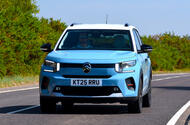 Issue affects C3, ë-C3, C3 Aircross and ë-C3 Aircross; incoming Vauxhall Frontera also impacted
Issue affects C3, ë-C3, C3 Aircross and ë-C3 Aircross; incoming Vauxhall Frontera also impacted
Citroën has told UK customers to not drive four of its newest models after a brake failure issue was discovered.
The affected cars are right-hand-drive versions of the new Citroën C3, ë-C3, C3 Aircross and ë-C3 Aircross.
The Vauxhall Frontera and Frontera Electric are also affected, but customer deliveries of those cars have yet to start.
The issue relates to the pedal box assembly potentially not being to the correct specification, heightening the risk of brake loss, Citroën parent company Stellantis confirmed to Autocar in a statement.
“If this were to happen, the automatic emergency braking (AEB) and the electronic parking brake would remain fully operational,” it added.
Stellantis said it had issued a “stop-drive action to protect all customers”, adding that those affected will be given replacement cars while theirs are checked.
For those waiting on Frontera orders, owners will be contacted and impacted cars “will be rectified prior to delivery”, Stellantis said.
All affected models sit on Stellantis's Smart Car platform. The related Fiat Grande Panda and Grande Panda Electric aren't affected by the issue, as it was corrected during production, Fiat told Autocar.
Autocar was alerted to the issue by several readers who were impacted by the Citroën recall. One had picked up their car just three weeks before the notice was given.
This latest recall is the third no-drive notice given by Stellantis in as many months.
Back in June, the company told all UK owners of Mk1 DS 3s and Mk2 Citroën C3s built between 2009 and 2019 to stop driving their cars immediately, due to a potential airbag issue.
The recall came after a woman in France was killed by the Takata-made airbag in her 2014 C3 exploding.
Since then, this recall has expanded to include the Citroën C4 (2010-2013), Citroën DS4 (2010-2015), DS 4 (2015-2017), Citroën DS5 (2010-2015) and DS 5 (2015-2018). The total number of cars affected here is near 130,000.
Worries have grown that Stellantis is struggling to deal with the recall. One reader told Autocar their car was recalled nearly six weeks ago and they're still waiting for the repair to be completed.
This backs a previous BBC report that quoted many Citroën owners who had been told the wait for repairs would take months. One was told their C3 couldn’t be fixed until January 2026.
Auctions Reveal Surprising Prices for Rare and New Cars
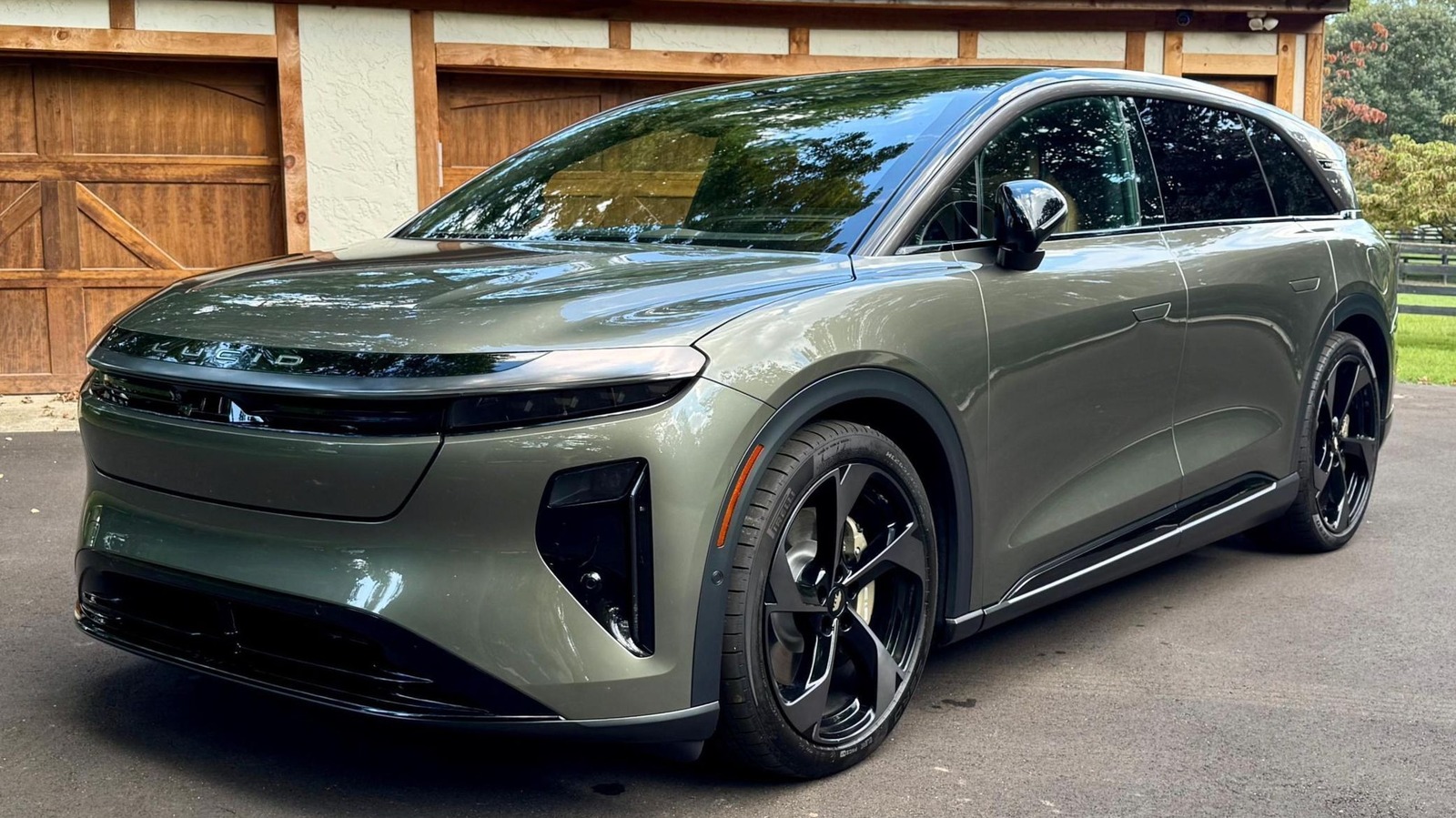
Volkswagen T-Roc Review Is This Stylish SUV the Best Used Buy for Families
 The T-Roc was hardly changed over its nine-year life - is it a worthy used buy across that time frame? When someone says they want a reliable, practical, good-looking and affordable set of wheels, the default recommendation is so often a Volkswagen Golf. But for those buyers who want a raised ride height and improved visibility (as so many do), then just nudge them towards the Golf of SUVs: the T-Roc.VW’s mid-sized crossover is a no-nonsense crowd-pleaser, not least for its distinctive design and flexible, punchy engines, allied to a smartly tuned chassis that is both comfortable and agile.The T-Roc was launched in 2017 with a price topping £30,000, but today you can find one for £7000 – which seems a steal for a well-equipped and well-rounded family car that will still feel up to date, irrespective of its age.The T-Roc is underpinned by the same MQB platform as plenty of other VW Group SUVs, but is sized and shaped for a more compact, sportier look that makes it less obviously a crossover.Its slightly low-slung stance suggests it was built with dynamism in mind, and sure enough it doesn’t disappoint. The T-Roc’s responsive and accurate steering inspires plenty of confidence, yet this agility isn’t tarnished by an unsettled ride. On the contrary, the T-Roc is comfortable and irons out bumps well. If you can find one, opt for a car fitted with the Dynamic Chassis Control package, which lets you configure the chassis depending on your mood. Stick it in Sport and the T-Roc is even more crisp and incisive to drive; select Comfort and it’s supple and pliant enough for hassle-free mile-munching.The engine you choose to power your T-Roc will determine the amount of fun you can have. If it’s B-road thrills you’re after, then seek out the 187bhp 2.0-litre four-cylinder turbocharged petrol. It’s a thirsty lump that will do well to return more than 35mpg, but it’s smooth and quiet, and it delivers plenty of muscle. If the warm-hatch vibe isn’t for you, the 148bhp 1.5-litre petrol four-pot will serve you well.You’ll pay around £12k-£14k for a tidy example with roughly 60,000 miles, but that’s decent value for a fashionable crossover that will do 40-45mpg day to day. We would avoid the 1.0-litre three-cylinder petrol and 1.6-litre diesel as they’re pretty staid. But if it is an oil-burner you’re after, the 148bhp 2.0-litre TDI delivers plenty of grunt, and you’ll easily manage north of 50mpg in the real world.The T-Roc’s fashionable silhouette is matched by a ritzy and upmarket ambience inside. Some elements on the dashboard and down by your knees feel a bit cheap to the touch, but aside from that it’s refined, robust and technologically slick. Specification wise, aim for at least SEL trim, which comes with the intuitive 8.0in touchscreen infotainment display and super-crisp 10.3in digital instrument cluster.Pleasingly, the T-Roc performs just as well as the Golf on the practicality front, and while it’s not as roomy as the related Seat Ateca, there’s enough space in the back for average-size adults – and even if you find one with a panoramic roof, it doesn’t encroach on head room.Most importantly, the T-Roc is a crossover that not only looks good but also makes you feel good when you drive it, and it proves that style conscious SUVs don’t cost the earth.
The T-Roc was hardly changed over its nine-year life - is it a worthy used buy across that time frame? When someone says they want a reliable, practical, good-looking and affordable set of wheels, the default recommendation is so often a Volkswagen Golf. But for those buyers who want a raised ride height and improved visibility (as so many do), then just nudge them towards the Golf of SUVs: the T-Roc.VW’s mid-sized crossover is a no-nonsense crowd-pleaser, not least for its distinctive design and flexible, punchy engines, allied to a smartly tuned chassis that is both comfortable and agile.The T-Roc was launched in 2017 with a price topping £30,000, but today you can find one for £7000 – which seems a steal for a well-equipped and well-rounded family car that will still feel up to date, irrespective of its age.The T-Roc is underpinned by the same MQB platform as plenty of other VW Group SUVs, but is sized and shaped for a more compact, sportier look that makes it less obviously a crossover.Its slightly low-slung stance suggests it was built with dynamism in mind, and sure enough it doesn’t disappoint. The T-Roc’s responsive and accurate steering inspires plenty of confidence, yet this agility isn’t tarnished by an unsettled ride. On the contrary, the T-Roc is comfortable and irons out bumps well. If you can find one, opt for a car fitted with the Dynamic Chassis Control package, which lets you configure the chassis depending on your mood. Stick it in Sport and the T-Roc is even more crisp and incisive to drive; select Comfort and it’s supple and pliant enough for hassle-free mile-munching.The engine you choose to power your T-Roc will determine the amount of fun you can have. If it’s B-road thrills you’re after, then seek out the 187bhp 2.0-litre four-cylinder turbocharged petrol. It’s a thirsty lump that will do well to return more than 35mpg, but it’s smooth and quiet, and it delivers plenty of muscle. If the warm-hatch vibe isn’t for you, the 148bhp 1.5-litre petrol four-pot will serve you well.You’ll pay around £12k-£14k for a tidy example with roughly 60,000 miles, but that’s decent value for a fashionable crossover that will do 40-45mpg day to day. We would avoid the 1.0-litre three-cylinder petrol and 1.6-litre diesel as they’re pretty staid. But if it is an oil-burner you’re after, the 148bhp 2.0-litre TDI delivers plenty of grunt, and you’ll easily manage north of 50mpg in the real world.The T-Roc’s fashionable silhouette is matched by a ritzy and upmarket ambience inside. Some elements on the dashboard and down by your knees feel a bit cheap to the touch, but aside from that it’s refined, robust and technologically slick. Specification wise, aim for at least SEL trim, which comes with the intuitive 8.0in touchscreen infotainment display and super-crisp 10.3in digital instrument cluster.Pleasingly, the T-Roc performs just as well as the Golf on the practicality front, and while it’s not as roomy as the related Seat Ateca, there’s enough space in the back for average-size adults – and even if you find one with a panoramic roof, it doesn’t encroach on head room.Most importantly, the T-Roc is a crossover that not only looks good but also makes you feel good when you drive it, and it proves that style conscious SUVs don’t cost the earth.Used luxury cars why low prices can mean big risks
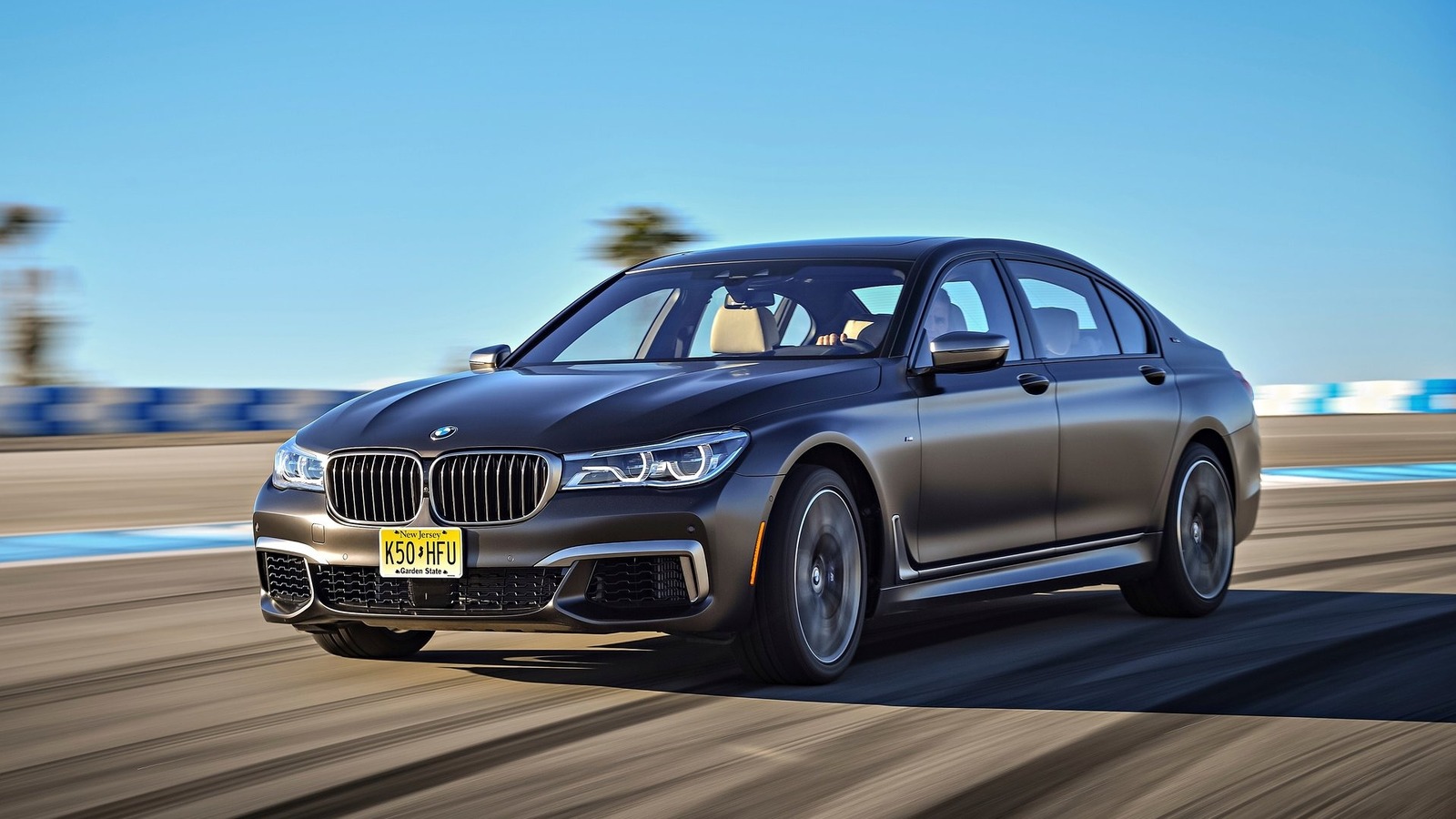
Mitsubishi Eclipse Cross debuts as electric crossover with impressive range and fresh design
 Electric crossover is a key part of the brand’s renewed line-up – and its mooted return to the UK
Electric crossover is a key part of the brand’s renewed line-up – and its mooted return to the UK
Mitsubishi has unveiled the second-generation Eclipse Cross as a rebadged Renault Scenic, giving the brand a crucial battery-electric model as it effectively relaunches in Europe.
It is differentiated from its French counterpart by styling tweaks such as Mitsubishi’s ‘Dynamic Shield’ grille, flanked by new streak-like daytime-running lights. The rear lights remain the same as on the Scenic but are joined by a new gloss black plastic panel.
Inside, the model gets new seats with diamond-shaped quilting but retains the Scenic’s 12.3in infotainment touchscreen, including Apple CarPlay and Android Auto smartphone mirroring.
Mechanically, the Eclipse Cross is all but identical to the Scenic, with an 87kWh nickel-manganese-cobalt battery pack yielding a range of 372 miles between charges. It can be refilled at up to 150kW at a DC rapid charger or at up to 22kW on an AC connection. A single electric motor sends 215bhp and 221lb ft through the Eclipse Cross’s rear wheels.
A “medium-range” model is set to arrive next year and is likely to use the entry-level Scenic’s 60kWh battery and 168bhp motor.
The Eclipse Cross will be built by Renault in Douai, France.
It is the latest in a run of rebadged Renaults to be launched by Mitsubishi under the firms' Alliance agreement: the entry-level Colt is a Renault Clio; the ASX is a Renault Captur; and the new Grandis is a Renault Symbioz.
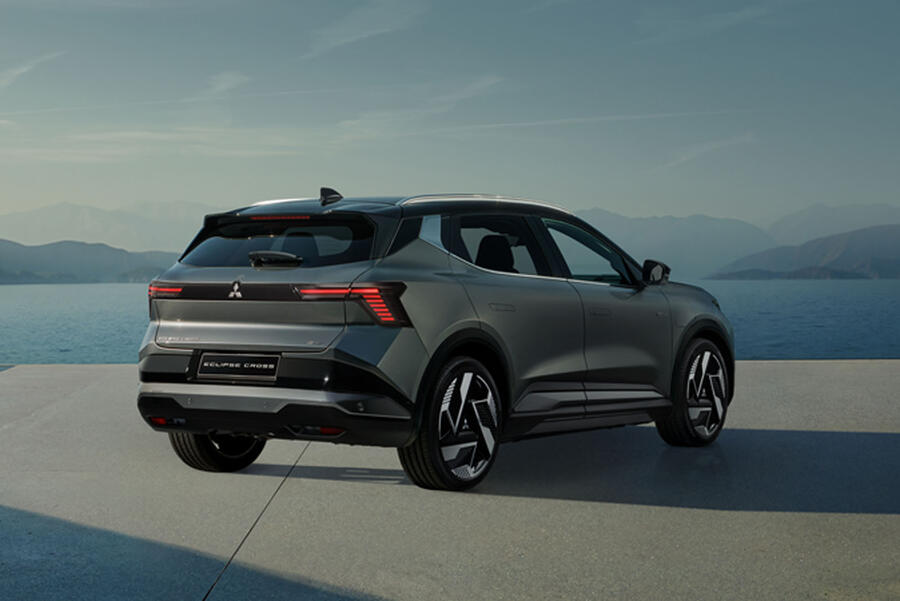
Following the cancellation of the Space Star (previously sold in the UK as the Mirage), it means Mitsubishi’s European line-up now comprises just one Japanese-built model, the Outlander.
The brand has yet to confirm plans to return to the UK, but the head of its European operations, Frank Krol, previously told Autocar that it was under consideration.
“If you look at the potential and size of the market, it's our preferred route to go back,” said Krol.
But he added that “we need to have the right product line-up”, pointing to the new Eclipse Cross and the Outlander.
718 EV set to share platform with upcoming Audi Concept C
